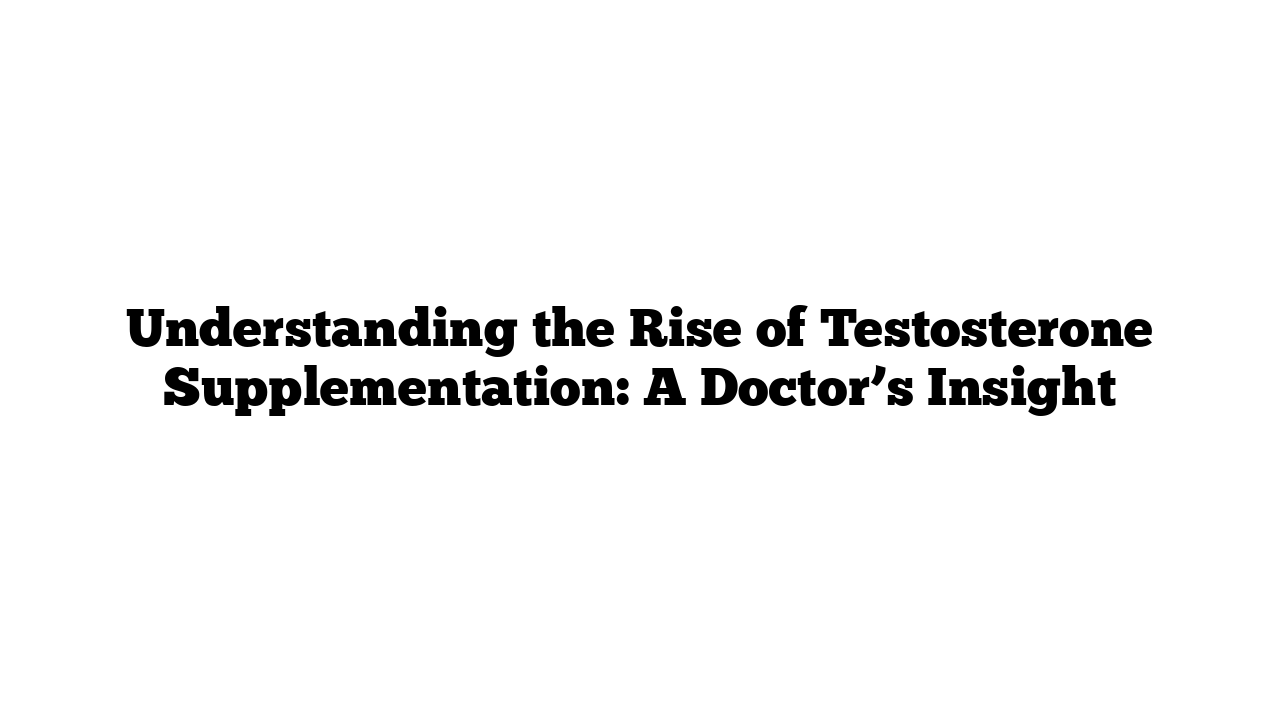With the growing trend of testosterone supplementation, millions of men are now taking testosterone in the form of pills, nasal sprays, or injections. This industry has seen a boom in recent years, with a significant increase in younger men joining in. But what’s driving this trend? What impact does testosterone have on the brain and body? And how might this link to fertility concerns seen in men globally? Let’s dive into the essential details.
What is Testosterone and Why is it Important?
Testosterone is a hormone—specifically, a steroid hormone—produced mainly in the testes for men. Hormones are chemical messengers that travel through the bloodstream and bind to cells to prompt various biological actions. While the pituitary gland and thyroid are responsible for hormone production, the gonads (ovaries and testes) also play a role, producing hormones like estrogen and testosterone.
During early development in the womb, the SRY gene on the Y chromosome triggers changes around the six-week mark, converting pre-ovaries into testes and prompting testosterone production. Testosterone then takes the lead, driving masculine traits during puberty, like voice deepening, muscle growth, and the development of facial hair.
The Role of Testosterone in Adult Life
After puberty, testosterone’s ongoing production is crucial for bone density, muscle strength, sex drive, and sperm production. The body self-regulates testosterone levels via feedback mechanisms to ensure balance. However, testosterone levels can fluctuate not only with age but even throughout the day, making “normal” levels somewhat variable.
As men age, testosterone production naturally declines, often leading to testosterone deficiency syndrome (TDS) or hypogonadism. This condition is most common in men over 40, with symptoms like fatigue, reduced sex drive, muscle weakness, and mood swings.
Why the Surge in Testosterone Use Among Young Men?
While testosterone therapy initially aimed to help older men with low levels, recent studies have shown that it can lead to muscle gains, fat loss, and better mood, even in those with normal testosterone levels. This discovery has contributed to testosterone’s newfound popularity among young men, leading to a fourfold increase in use in the USA for men aged 18 to 45. Many seek out testosterone for energy boosts, mood improvement, and sexual health benefits. Unfortunately, many younger men are obtaining testosterone without medical consultation, unaware of the potential health risks.
Potential Risks of Unregulated Testosterone Use
While testosterone supplementation may seem appealing for various perceived benefits, it’s essential to understand the risks:
- Heart Health: Some studies suggest a link between testosterone therapy and heart disease. Though research remains inconclusive, there’s evidence that testosterone increases hematocrit levels, which thickens blood and can lead to cardiovascular issues.
- Prostate Health: There’s concern over testosterone therapy’s effect on prostate cancer. While not conclusively linked, testosterone may accelerate existing prostate cancer growth.
- Fertility Concerns: The most significant risk for young men is reduced sperm production. Testosterone supplementation reduces the release of GnRH, a hormone essential for spermatogenesis. This can lower sperm count, shrink the testes, and ultimately impact fertility.
- Sleep and Mood: Increased testosterone can exacerbate sleep apnea and lead to mood swings, irritability, and even insomnia.
- Other Concerns: Testosterone supplementation can also increase the risk of kidney stones, worsen acne, and impact emotional stability.
Should You Consider Testosterone Supplementation?
If you suspect low testosterone, it’s crucial to consult a doctor who can perform blood tests to confirm hypogonadism. Self-prescribing testosterone is risky without medical supervision, as imbalances can lead to severe side effects, especially in young men who may wish to start families.
The appeal of increased muscle mass and energy shouldn’t overshadow the risks. Testosterone supplements should only be taken when medically necessary and with careful monitoring. Remember, the safest path is always to consult a healthcare provider.
For more on hormone health and other medical insights, visit medicaltimes.io.
Frequently Asked Questions (FAQs)
- What is testosterone?
- Testosterone is a steroid hormone primarily produced in the testes, responsible for masculine traits and various bodily functions.
- What are the benefits of testosterone supplementation?
- Potential benefits include muscle gain, improved mood, and enhanced sexual function, but only under medical supervision.
- What is hypogonadism?
- Hypogonadism, or TDS, is a condition where testosterone levels are abnormally low, often occurring in older men.
- Can young men safely take testosterone supplements?
- Generally, no. Testosterone supplements carry risks, especially for young men, and should be medically supervised.
- Does testosterone therapy increase the risk of prostate cancer?
- The evidence is mixed; some studies suggest it may worsen existing cancer, while others show no direct link.
- How does testosterone affect fertility?
- High doses of testosterone can reduce sperm count and potentially lead to infertility.
- Can testosterone cause mood swings?
- Yes, testosterone can lead to mood swings and irritability.
- Is testosterone linked to heart disease?
- Some studies suggest a risk, especially due to increased blood thickness, though more research is needed.
- Can testosterone help with sleep?
- Actually, it may worsen sleep apnea or even cause it.
- How do I know if I have low testosterone?
- Only a doctor can diagnose low testosterone through blood tests and symptom evaluation.
